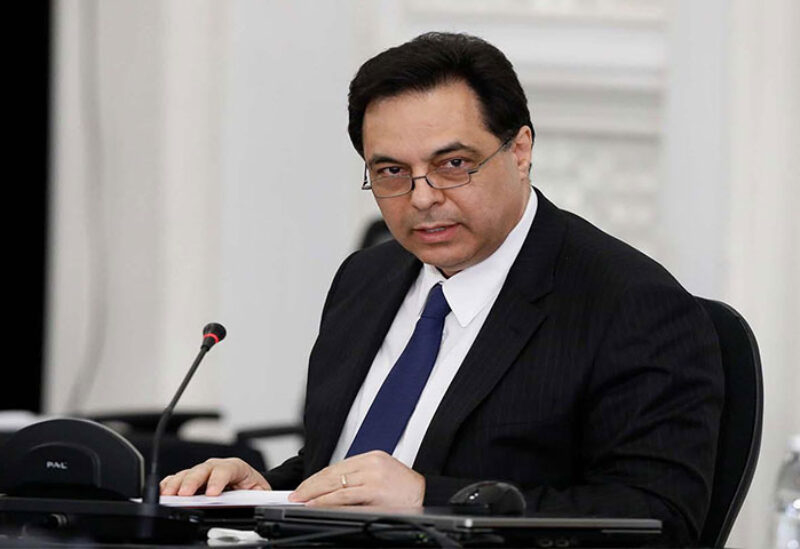
Hassan Diab
Caretaker Prime Minister, Hassan Diab, chaired a meeting on marine pollution, attended by Ministers Zeina Akar, Demianos Kattar, Mohammad Fahmi, and Michel Najjar, as well as the President of the Higher Relief Commission, Major General Mohammad Khair, Secretary General of the National Council for Scientific Research (NCSR), Mouin Hamzah, among others.
The National Council for Scientific Research presented the results of the field and aerial survey and the preliminary assessment, regarding the oil pollution disaster in the area extending from the Blue Line in Naqoura in the south to the outskirts of Beirut, upon the request of the Prime Minister,.
Premier Diab made several recommendations:
– Securing financial support for the Union of Municipalities in the Districts of Tyre and Zahrani to accelerate the removal of tar contamination and its collection in environmentally safe places, pending disposal, in accordance with public safety standards.
– Ensuring inter-institutional cooperation and conducting an interim evaluation of work progress.
– Requesting the army to provide security and logistical support, and following up with the Ministry of Defense to coordinate with UNIFIL forces operating in the south to provide the government with any urgent reports or documents related to oil spills within its area of operation.
– Calling on the Ministry of Foreign Affairs to follow up on the complaint filed by the Lebanese state against the Israeli enemy, provided that it includes environmental and material damage, so that it can constitute the basis for any possible compensation in the future.
– Requesting the Ministry of Environment to follow up on cleaning works and determine the best mechanism for disposing of petroleum materials once collected, as well as follow up and monitor implementation.
– Ensuring the Ministry of Works’ readiness to dispose of oil materials after collection according to the mechanism set forth jointly with the Ministry of Environment.
– Requesting the Ministry of Interior to coordinate with the municipalities and the Union of Municipalities concerned with the disaster; determining the needs and costs required to clean the shores of oil materials, and coordinating with NGOs and international organizations regarding any possible technical, practical support and financial support.
– Determining the needs and seeking assistance from international organizations.
– Requesting the World Bank to assist Lebanon in assessing the economic damage resulting from the catastrophic oil spill.
– Requesting the United Nations Development Program in Lebanon to assist Lebanon in assessing the environmental damage resulting from the leakage.
– Formally requesting UN-related international organizations operating in Lebanon to logistically and financially support the efforts of the municipalities in cleaning the shores.
– Conducting an environmental impact assessment on the coastline, the sea, and fisheries, over a period of one year.